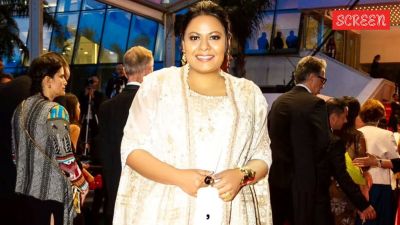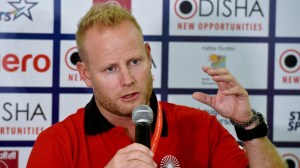After the last sky
Edward said was already into the seventh year of his battle with leukaemia, when I interviewed him for this newspaper in December 1997. What...

Edward said was already into the seventh year of his battle with leukaemia, when I interviewed him for this newspaper in December 1997. What struck one was the man8217;s passion, despite knowing he was living on borrowed time. Palestine, of course, consumed the lion8217;s share of that passion, but there was plenty left over to take in the broad sweep of contemporary literature, art, music and life itself.
He did not believe in a proprietory view of culture, one that maintained that this is my culture and that isn8217;t. This was probably because he was, as he said, a 8220;mongrel8221;. As a child, he remembered the classrooms were full of Jews and Muslims, Armenians, Greeks. The family left Palestine when he was 12 and it was perhaps no accident that the city he finally made his home was New York, again quite mongrel, the 8220;least American8221; of American cities, as he put it.
In fact Said8217;s relationship with the US was a complex one. He was educated there, spent all his professional life 8212; a fruitful 40-year partnership with Columbia University 8212; and felt completely at home there. Yet he retained a 8220;double perspective8221;: that of an American, who is a dissenter; and that of an Arab/Palestinian.
When it came to Palestine, there was no stopping Said. Over the years he poured words into its broken spaces 8212; academic analyses, media commentaries, photo-essays, travelogues. He despaired over the fact that it had no allies: 8220;The Arab countries around us are very, very shifty8221;. That the alliances it built no longer exist. That it was fighting Israel: 8220;You couldn8217;t find a worse enemy, because they are the people who went through every kind of tribulation. They have an instinct for survival that is ruthless. Besides, it has America8217;s unqualified support.8221;
But he also despaired over the Palestinian leadership. Yasser Arafat, whom he had known very well, he characterised as a man with a genius for survival. While he did manage to unite the people, he was without vision. Arafat, Said was convinced, had not provided the Palestinians the moral leadership they needed, unlike a Mandela who through his years in jail held on to the principle of one person, one vote. He felt that Arafat8217;s sell-out during the Oslo negotiations proved that crucial moment of surrender.
There was a point when Said did go back to the land of his childhood. In 8217;92 he visited his family home in West Jerusalem, where he was born. 8220;It was very emotional. The house was virtually unchanged. I showed the children the room I was born in, but I couldn8217;t bring myself to enter. It8217;s a strange feeling, where your country is there and built on top of it is another country. And the new one completely denies the existence of the first.8221;
Said8217;s long engagement with Palestine has finally come to an end. Who can stop death? As he put it, 8220;With an ailment like leukaemia, when you hear the word for the first time it is difficult. It took me a few months to get over that. But it is a matter of discipline. You have to die anyway. Before you go under, you might as well live in the best way you can.8221; He did that by keeping those great, passionate words flowing until the end.
- 01
- 02
- 03
- 04
- 05































